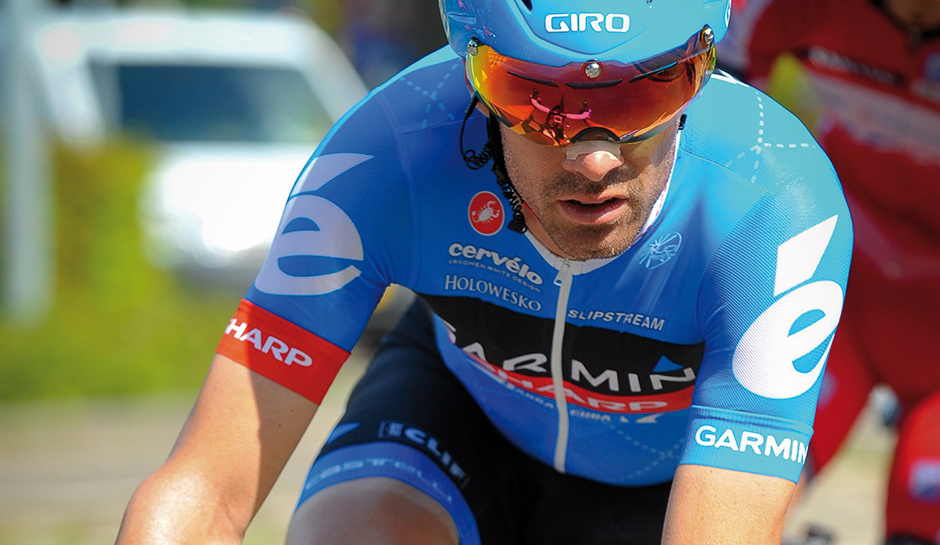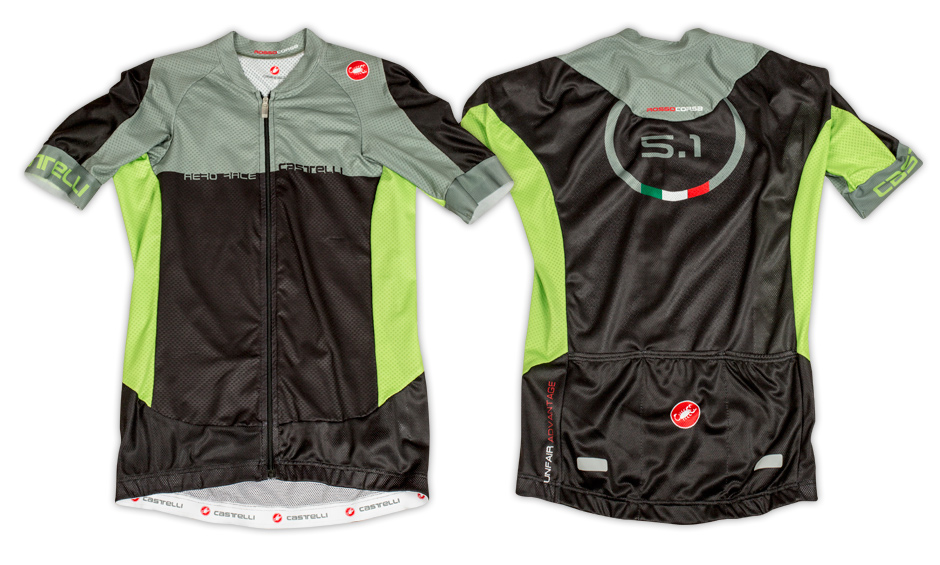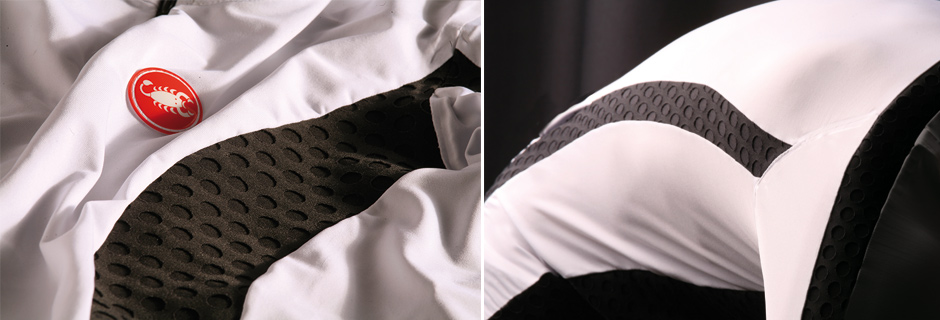Aero Race: the most aerodynamic jersey ever created
The Aero Race Jersey originates from a very simple concept that is representative of the Castelli DNA: enabling riders to go as fast as possible.
The idea emerged when we realized that improving the fit of the clothing reduced aerodynamic drag, allowing the rider to gain precious seconds. If we consider that a professional cyclist in a race maintains an average speed of more than 30 km/h, even though this is not the speed of a race car it is still a significant speed when dealing with aerodynamics.
The Aero Race Jersey is certainly not a piece of clothing that is developed and created in a conventional manner. Every item of Castelli clothing has in its DNA its research and its typical construction as an article of race clothing, but top-of-the-line garments like the Aero Race Jersey undergo a slightly different production process, which applies aerodynamic studies to everything and places the construction design of the garment in the next step.
1 The first phase takes place in our scientific laboratories, where a hypothetical jersey, which in theory is the best combination, is proposed. This hypothetical idea of a jersey includes all the surfaces that must have low aerodynamic drag, arranged in a purely functional manner to create an aerodynamically perfect garment.
 After meeting the technical and functional requirements defined by Steve and the aesthetic ones defined by Maria Teresa, the garment goes to Sonia, who together with me has to find the best solutions that reflect the ideas of both.
After meeting the technical and functional requirements defined by Steve and the aesthetic ones defined by Maria Teresa, the garment goes to Sonia, who together with me has to find the best solutions that reflect the ideas of both.
Valentina – Product Development
2 From this sketch, the process moves to choosing the fabrics to work with, in a list of materials, stretchy and close fitting, that have an influence in the construction of the jersey, allowing us to maximize the possibilities in the construction of a jersey with low drag. At this point the project is handed over to the pattern office, where recommendations for the fit of the garment are made. Keeping the aerodynamics in mind, multiple versions of the Aero Race Jersey are created. So the pattern office creates the prototypes …
 The work we do is to try to get the jersey, in all the sizes, to adhere to the model, looking for the best fit for the rider who expects the most from a jersey, reducing fabric waste and making the cut perfect.
The work we do is to try to get the jersey, in all the sizes, to adhere to the model, looking for the best fit for the rider who expects the most from a jersey, reducing fabric waste and making the cut perfect.
Mara – Pattern Making
3 This is the phase where we try to combine the rules of aerodynamics with those of fit. Here the team decides how to arrange the various fabric panels, what zipper to use, and all the details that allow us to create an exceptional jersey that is still as close as possible to the aerodynamic requirements that were laid down early in the process.
4 After this phase comes the fitting. One of our athletes puts on the jersey model, and we work to make it more wearable — trying to bring the fit of the garment closer to the theoretically aerodynamically perfect model that we started with.
5 When we are satisfied with the fit of the jersey we can move on to the wind tunnel tests. Here we can really see how, aerodynamically speaking, the jersey will behave when worn in training or racing. With multiple variations of the same jersey on hand, we can determine which offers the best aerodynamic performance and thus which to take on to the next step.
 Sewing the Aero Race Jersey is not easy, as there are many materials: it is a very technical jersey. Assembling them well ensures the proper functioning of the jersey not only as a comfortable and practical article of clothing but as an aerodynamic benefit.
Sewing the Aero Race Jersey is not easy, as there are many materials: it is a very technical jersey. Assembling them well ensures the proper functioning of the jersey not only as a comfortable and practical article of clothing but as an aerodynamic benefit.
Nadia – Tailoring
6 The style in this garment is not ignored, but in this case we can’t say that it comes first or is more important than everything we’ve done on the aerodynamics. From the design point of view, a jersey like this cannot have a lot of folds, unusual necklines or gathers, as they would compromise the aerodynamics and they are not what represents the strong point of a garment like this. The jersey design in this case is all printed, so the designer, Maria Teresa, or graphic designer, Enrico, prepares a design in the Castelli style that fits with the jersey in color variations that reflect the fashion of the moment.
LIKE A GOLF BALL
In 2006 Zipp introduced the 404 wheels with a special dimpled surface, like a golf ball. This made us think about how it could be possible, in the same way, to improve the aerodynamic performance with the addition of a dimpled fabric. We incorporated this idea, which later evolved further, into the first model.
WHERE IT ALL STARTED
In addition to testing in competition and in training, the creation of the original jersey also involved tests in the Low Speed Wind Tunnel in San Diego. The location of the tests to improve the aerodynamics of the bikes was where we got the idea: significant resources are always invested to make the bike more aerodynamic, but it will never have as much surface area as the rider.
So our question was, is it more important to invest in the aerodynamics of the bike or of the clothing the rider wears, which has an area five times larger than the bike?
This is where we got the inspiration for the most aerodynamic jersey on the market, to minimize the aerodynamic drag of the upper part of the body against the wall of air that the rider has to break at race speed.
The first Aero Race Jersey saved up to 10 watts at a speed of 40 km/h: close-fitting over the whole body, with construction designed for the cycling position and Giro++ sleeve ends created to keep air from going into the jersey, which would compromise its aerodynamics.
THIS AND MANY OTHER ITEMS CAN BE FOUND IN OUR PHOTO FINISH MAGAZINE
Read it on Issuu







